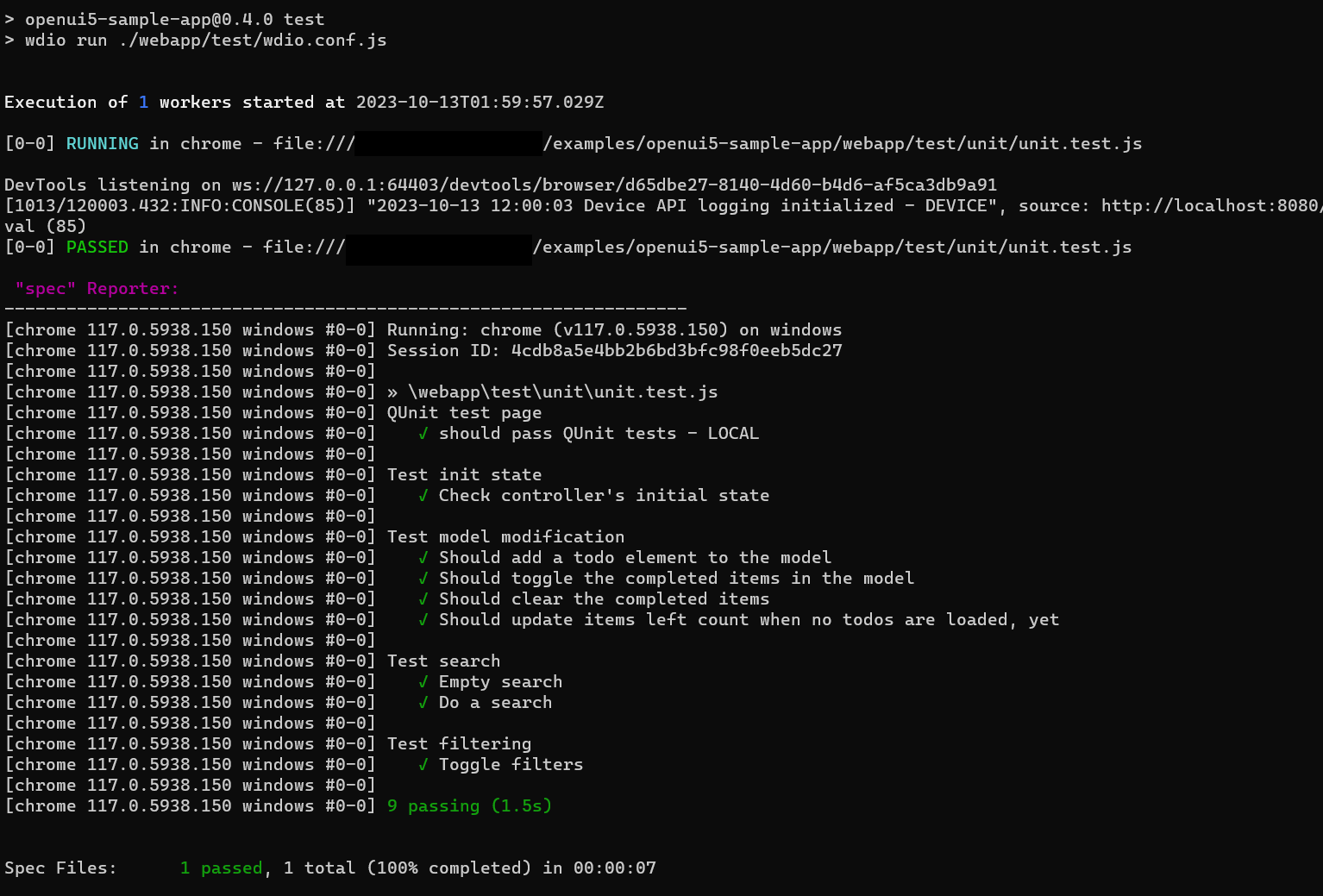WebdriverIO (wdio) service for running QUnit browser-based tests and dynamically converting them to wdio test suites.
QUnit Service is a drop-in replacement for those using Karma JS to run their QUnit tests (karma-qunit, karma-ui5 or any other combination of Karma and QUnit). Karma is deprecated and people should move to modern alternatives!
If you want to keep your QUnit tests as they are, with no rewriting and no refactoring, QUnit Service is everything you need. It runs your QUnit HTML files in a browser and captures all the results in wdio format.
Because of that, developers can use QUnit Service in tandem with everything else available in the wdio ecosystem.
Want to record the test run in a video? Perhaps take a screenshot or save it in PDF? Check the Code coverage? Save the test results in JUnit format? Go for it, QUnit Service doesn't get on your way.
After configuring WebdriverIO, install wdio-qunit-service as a devDependency in your package.json file.
npm install wdio-qunit-service --save-devIf you haven't configured WebdriverIO yet, check the official documentation out.
In order to use QUnit Service you just need to add it to the services list in your wdio.conf.js file. The wdio documentation has all information related to the configuration file:
// wdio.conf.js
export const config = {
// ...
services: ["qunit"],
// ...
};Make sure the web server is up and running before executing the tests. wdio will not start the web server.
In your WebdriverIO test, you need to navigate to the QUnit HTML test page, then call browser.getQUnitResults().
describe("QUnit test page", () => {
it("should pass QUnit tests", async () => {
await browser.url("http://localhost:8080/test/unit/unitTests.qunit.html");
await browser.getQUnitResults();
});
});It's recommended to have one WebdriverIO test file per QUnit HTML test page. This ensures the tests will run in parallel and fully isolated.
If you don't want to create spec/test files, you can pass a list of QUnit HTML files to the configuration and the tests will be automatically generated.
// wdio.conf.js
export const config = {
// ...
baseUrl: 'http://localhost:8080',
services: [
['qunit', {
paths: [
'unit-tests.html',
'integration-tests.html',
'test/qunit.html'
]
}],
// ...
};Check the examples folder out for samples using javascript, typescript and more.
Straight forward example using the well known openui5-sample-app:
-
Create a configuration file: wdio.conf.js
-
Tell
wdiowhere to find the QUnit test files: -
- Include the QUnit files to the service configuration
-
- or
-
- Create a WebdriverIO test file for unit tests and another for OPA5 tests
-
The web server must be running before executing the tests
-
Run it $
wdio run ./webapp/test/wdio.conf.js
Mauricio Lauffer
This project is licensed under the MIT License - see the LICENSE file for details.

